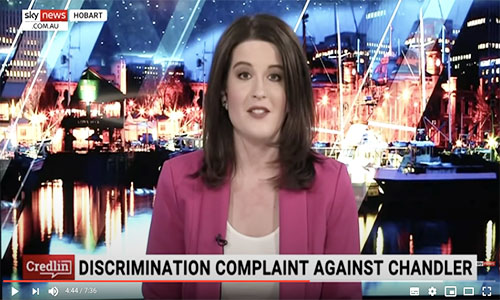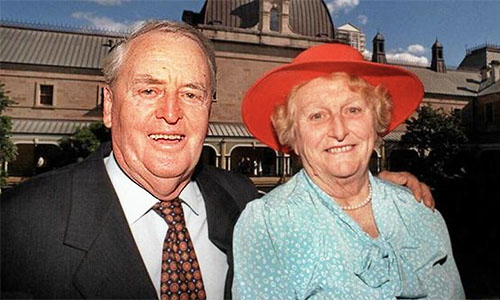
by PAUL COLLITS – THE global economy is a house of cards. When it comes crashing down, as many believe it will, the heavily leveraged plebs who will lose everything, not the controligarchs.
Because … they have a plan.
- The pandemic was intended to shutter small businesses while cosseting the big corporates. It certainly worked out that way.
- Bets always have losers. And someone has to pay.
- Those moving the chess pieces are out to make sure it isn’t them.

Financialisation has been described as “playing with money” and “voodoo”. It’s a game where options, forwards, futures and swaps – also known as derivatives – is played at other people’s risk.
We are all tethered to it, without knowing.
So, what are derivatives?: Derivatives are financial contracts, set between two or more parties, that derive their value from an underlying asset, group of assets, or benchmark. A derivative can trade on an exchange or over-the-counter. Prices for derivatives derive from fluctuations in the underlying asset.”
Essentially, they are bets. Warren Buffett, an eternally canny investor and himself one of the “controligarchs” says derivatives “are financial weapons of mass destruction, carrying dangers that, while latent, are potentially lethal”.
Bets always have losers. And someone has to pay. Those moving the chess pieces are out to make sure it isn’t them.
Buffett’s warning in itself is pretty alarming, given the power and reach of derivatives markets.
One estimate of the size of the global derivative market places it at around one quadrillion US dollars. That would be a thousand trillion.
More noughts than an Aussie batting card in the mid-80s. Outstripping the size of the global economy, measured in 2021 at a mere 96 thousand billion, by orders of magnitude.
Which brings us to David Rogers Webb, an American financial analyst living in Sweden. Those familiar with Catherine Austin-Fitts and Ed Dowd (who each have excellent Telegram channels) may already be aware of Webb, and so will be familiar with both his technical expertise and his dire message.
He has released a confronting documentary film called The Great Taking.
He has also written a short book with the same title. Published freely in accessible PDF form. And he is no fly-by-night “conspiracy theorist”.
He has worked most of his life in the finance sector, in private equity companies, in mergers and acquisitions, hedge fund management and the rest of it. He might be overstating his case. But he knows his stuff. His insider knowledge is deep and broad.
His book contains too many gold nuggets to be adequately reported here:
- About the central banks, and their ownership and/or control by private banks;
- The role of COVID in positioning the ruling class for the “great reset” with which readers will be quite familiar;
- A refresher course on the Great Depression and the Global Financial Crisis of more recent memory;
- The structure of international finance, about which readers may be less familiar;
- The nature of hybrid warfare;
- The importance of economic inflection points;
- The way our property and wealth back new financial instruments and asset classes;
- Financialisation and war;
- The origins of bubbles, and their deliberate planning;
- The importance of declines (collapses?) in the velocity of money (VOM);
- The way bankers stay in control through subjugation;
- The role of intelligence agencies in cementing the international banking regime;
- The Fed’s “murky powers”; and
- How those who control the system have collateralised our assets such that, come the crisis, we will lose all and they will survive.
A useful summary can be found at the outset of the book: “What is this book about? It is about the taking of collateral, all of it, the end game of this globally synchronous debt accumulation super cycle…
“Privately owned personal and real property financed with any amount of debt will be similarly taken, as will the assets of privately-owned businesses, which have been financed with debt. If even partially successful, this will be the greatest conquest and subjugation in world history.”
The impressive and prolific Bert Olivier at The Brownstone Institute was impressed by Webb’s book: “One of the very best exposés of the covert, very well-hidden, bellicose attempts to rob all of humanity – barring the miniscule number of psychotic individuals comprising the inimical opposition – of their material possessions and their ‘immaterial’ freedom.”
On the GFC, Webb states: “In the aftermath of the Global Financial Crisis it eventually became known that tens of trillions in losses in derivative positions were housed in the biggest banks, which were then bailed out with newly created money. The prime brokers would have failed, but to prevent that they were made banks and also received direct injections of created money from the Fed. No one was prosecuted. On the contrary, the perpetrators were rewarded with enormous bonuses. It was almost as if it had all gone according to plan.”
As I say, he knows his stuff. I am not aware of much push-back against Webb’s work by the fact checker class. They probably don’t understand it.
WARNING
Catherine Austin-Fitts characterises Webb’s book as a warning about only one of the threats to our wealth and our lives posed by the great taking.
She notes several other real and anticipated takings/threats that she deems to be more worrying that Webb’s specific warning about the taking of our securities.
She places financial transaction freedom at the top of the threats. Just ask the Canadian truckers about that.
Then there are the other threats – to food, to health, to the banks themselves, which hold our cash and mortgages – FD Roosevelt closed them down in the Great Depression – to real estate, to retirement accounts (superannuation), to all manner of investments.
A telling phrase from Webb’s story resonates with the current Australian predicament.
He refers to: “… the scale of insolvencies that are not being discussed.”
Indeed, they are not being discussed, except by the odd business journalist with open eyes, like the evergreen Robert Gottliebsen and the acerbic Terry McCrann. We are instructed not to notice. We are an insolvent nation.
Small businesses especially have been going to the wall, as a class. Part of the plan for global control by the elites?
The facts fit the theory. These small firms have been triple-whammied with lockdowns, the freezing up of discretionary spending as a result of rising interest rates and career uncertainty, and the destruction of downtown businesses squeezed by online retail.
Some argue, without any compelling push-back, that the pandemic was intended to shutter small businesses while cosseting the big corporates. It certainly worked out that way.
Which brings us to recent political events abroad.
David Webb’s breathtaking documentary (and book) and his recommendations for popular fightback coincide with some movement in the political tectonic plates.
I am sure that much of the rise of the contra Parties in the recent European Union elections can be put down to far more visible problems than the coming financial cataclysm foreshadowed by Webb.
Much of what he describes is hidden from popular view and requiring a fairly sophisticated understanding of the workings of the international central banking cartel.
Why should the voting public know and understand all this? I didn’t. But they do understand the surface economic issues – and the distractions to which they have been subjected. Big time.
Yes, the stirrings are there, and the popular instinct is generally on the money. The punters smell a rather large rodent.
British political scientist Matt Goodwin’s theory on the rise of populism, most recently seen at the Leftist train-wreck that was the EU election.
The ruling classes are clenching buttocks, all of a sudden. Goodwin’s own rise in popularity as an online pundit is itself coinciding with the sudden re-appearance of Nigel Farage and the threat posed by Reform UK to (mainly) the British Tories.
It is quite a story in an otherwise hitherto boring UK election.
TRUST
Goodwin names four reasons for the rise of Right-of-centre grumpiness and push-back – the loss of trust in government and other key institutions, fears over the future and over the loss of national identity and the people’s traditional way of life.
In Europe, there is push-back against Leftist Brussels. In Britain, it is, according to Farage, all about immigration, legal and otherwise, and the impact of immigration on British life.
Goodwin would not disagree. He describes what he is seeing as a “perfect storm” for the dissident Parties. It was a great week for we-the-people.
The masters of the universe are running the show. But, at bottom, many of them, even those high up the tree, don’t have a clue.
Certainly, our elected leaders don’t. The thirty-somethings running the formerly great agencies of State don’t. Only the “heads of the snake” know it all. And they aren’t telling us about what they have constructed, over time, and with intent.
They are giddy with power.
Their ultimate consolation is that they know that we don’t have the slightest knowledge about the system they have built, this house of cards, and what its inevitable collapse will mean for us.PC












